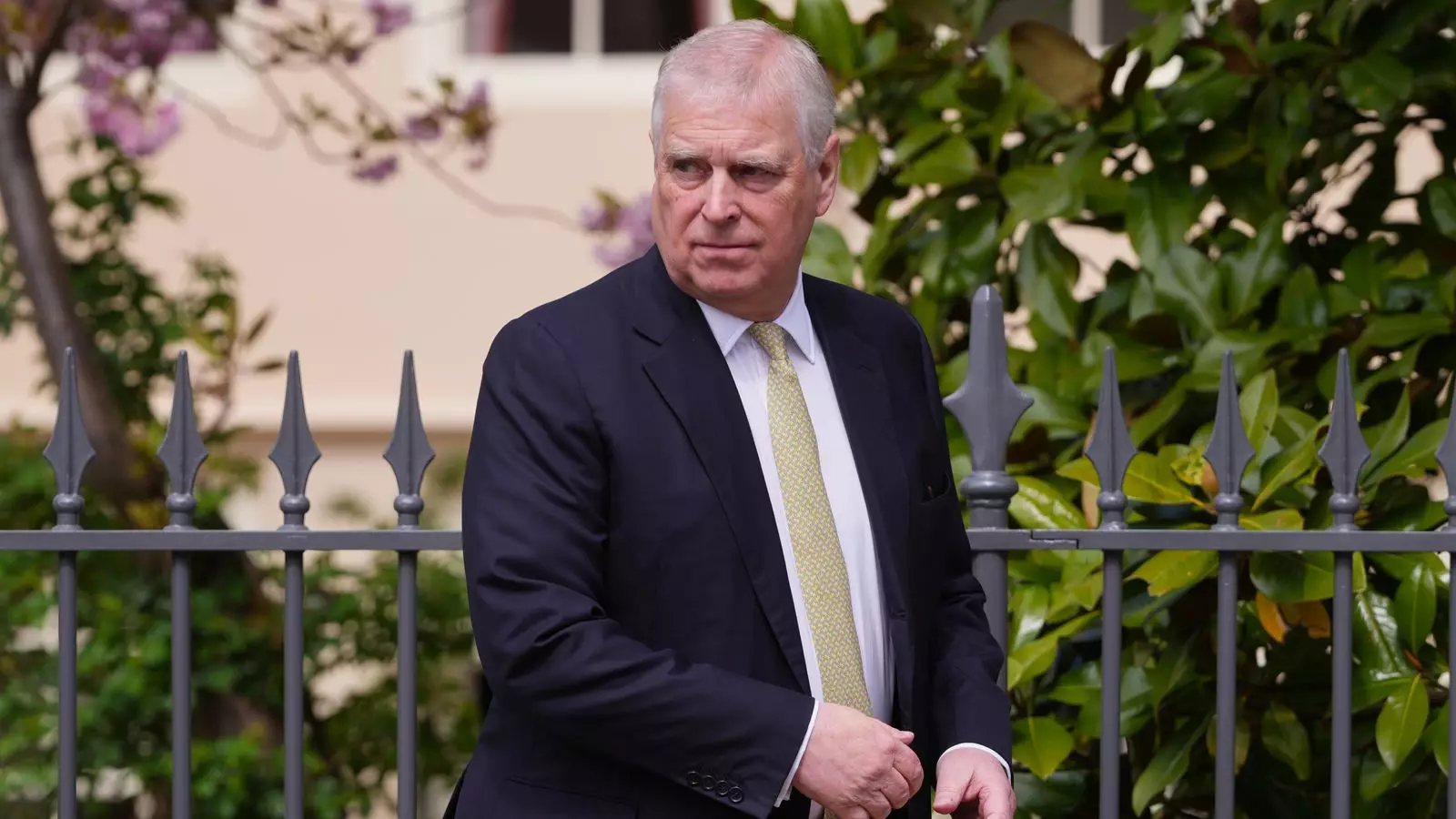Easter Sunday in Windsor, a day typically associated with unity and celebration, has taken a peculiar turn in recent years. Witnessing the Duke of York, Prince Andrew, reacquainting himself with royal traditions amidst swirling scandals and public scrutiny, raises unsettling questions about the endurance of family ties in the wake of controversy. Despite the larger context of his diminishing royal stature, Andrew’s presence at the Easter service, juxtaposed against the backdrop of his family’s ongoing evolution, sends a message that often feels discordant to the ideals of public service that the monarchy is meant to embody.
This year, the Easter congregation at St. George’s Chapel was marked by a notable absence—William and Kate, opting for family time away from the public eye. Their decision paints a picture of a modern royal family striving to balance traditional duties with contemporary familial obligations. As they prioritize their children over formal gatherings, one can’t help but wonder if this is a subtle indication of the evolving monarchy adapting to a new era while grappling with how to handle the remnants of scandal that continue to overshadow it.
Eclipsed by Shadows
Prince Andrew is no stranger to controversy. Since stepping back from his royal duties in March 2020 after a disastrous BBC interview, he has become an emblematic figure of modern monarchy’s vulnerabilities. His attendance at Easter Sunday services has transformed from a cherished family affair into an uncomfortable reminder of unresolved allegations and familial fracture. With his dynamic in flux, it raises eyebrows to see him interacting with his ex-wife, Sarah Ferguson, in such a public setting when his reputation remains deeply tarnished.
The elephant in the room cannot be ignored. The allegations of Andrew’s connections to a Chinese spy and the far-reaching implications of his proximity to notorious figures haunt not just him, but the monarchy as a whole. While other family members seem more hesitant to engage in public displays of family unity, Andrew’s return signals a reluctance to let go of the royal legacy, even as the terms of that legacy shift beneath him.
Redefining Royal Messaging
This Easter sermon, historically a moment to unify and inspire, took on a different connotation entirely. With the Archbishop of York stepping in for the Archbishop of Canterbury, the air was fraught with moments of reflection not just on faith but the church’s own failings to confront historical abuses. The positioning of temporary authority figures amplifies the weight of the occasion, creating a sense of ‘business as usual’ that feels unsettling. How can a tradition meant to uplift resonate authentically when the foundations beneath it wobble?
The King’s Easter message—articulating themes of “great cruelty and great kindness”—sparked a resonant focal point. Yet, one could argue that such lofty expressions feel strangely hollow amidst personal and institutional scandals. The virtues of faith, hope, and love are almost ironic in the face of personal disgrace within the family. What does it mean to preach these values when they seem to be at odds with one’s personal life?
The Cost of Tradition
At the heart of these royal gatherings lies a sense of tradition that is both revered and challenged. The Maundy service, where the King honors community contributions, serves as a reminder of the monarchy’s duty to acknowledge those it serves. Yet, as Prince Andrew occupies this charged space at Easter Sunday, one must question whether such traditions can withstand the weight of controversy without losing their essence.
In an age where transparency and accountability are demanded of public figures, how does one reconcile that with the continued elevation of individuals whose conduct has come severely under fire? There is a pervasive sense that while the institution tries to preserve its grandeur, its core values are being put to the test.
The monarchy, with all of its regal appearances, now faces a critical junction. The evolving narratives of family loyalty versus accountability will reverberate for generations to come. As Easter rituals unfold year upon year, the shadows of past scandals remind us that not all traditions are sustainable, especially when they conflict with the ethical duty owed to the public.

